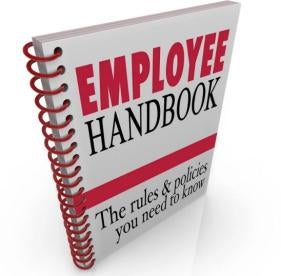Many union employers insist on strong management clauses in their labor agreements. Such clauses contain language reserving for the employer the right to adopt new rules and regulations. A reasonable employer may assume that this language gives the company the right to adopt rules and regulations without first bargaining with its union. A recent decision from the National Labor Relations Board reflects just how differently the Board views this issue than the “reasonable employer,” and provides several lessons learned for employers moving forward.
In that case, the Board reviewed a management right clause that, among other things, gave the employer the right to: “adopt and enforce rules and regulations and policies and procedures.” Relying on that clause, the employer unilaterally adopted new work rules and a new attendance policy. The employer also denied the union’s request to receive information and bargain about the changes. According to the company, because the management rights clause allowed the employer to adopt rules and policies, bargaining was not required.
The Board disagreed, however, concluding that the employer was required to bargain and provide information related to the changes before implementing the new rules and policies. According to the Board, while the management rights clause reserved the right to adopt “rules,” it did not specifically say “work rules,” and while it reserved the right to adopt “policies,” it did not specifically say “attendance” policies.
In reaching its decision, the Board wrote, “[i]n order to find a waiver {of a duty to bargain} based on contractual language, that language must be ‘sufficiently specific.’” The Board also determined that, in order for there to be an effective waiver of the obligation to bargain, it would look for evidence that the intent to waive was “fully discussed and consciously explored during negotiations.”
This Board decision was not simply a loss in principle for the employer. It had real economic consequences, including the Board ordering the employer to pay back-pay to all employees who were “improperly” discharged under the new work rules and attendance policy.
What does all of this mean for an employer who relies on management rights clauses? Several things:
-
Stating the obvious, do not assume your management rights clause gives you the right to take unilateral action without first bargaining over your proposed course of action. Check with legal counsel to determine whether your contract language, past practice, and bargaining history give you sufficient authority to proceed without bargaining.
-
This issue is not limited to work rules and attendance policies. The duty to bargain can also apply to many other management rights (e.g., subcontracting, transfers of work, layoffs).
-
In this context, “bargaining” does not always mean “get agreement” or “get permission.” In many cases, an employer has the right to ultimately take its proposed action without agreement with the union. But, without a clear waiver of the duty to bargain, the employer is generally required to engage in good faith bargaining (discussion) before implementing the decision.
-
How much discussion has to occur, and how much information needs to be exchanged in order to satisfy the duty to bargain requires a case-by-case analysis. An employer should not be too quick to say “we have talked enough.” Allow the union sufficient time – often over several meetings – to ask questions and offer alternatives. In these situations, patience really is often a virtue (and helps avoid costly economic consequences).




 i
i


